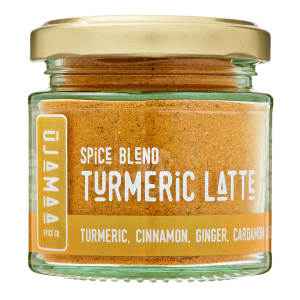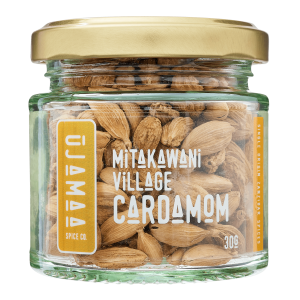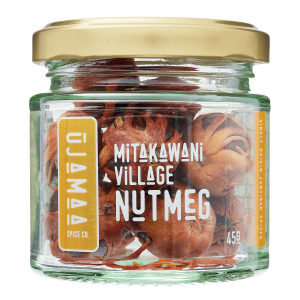Mitakawani Village
meet the farmers
Mitakawani is a small town situated right in the middle of Unguja, the southernmost main island of the Zanzibar Archipelago.
The area here is more hot and dry compared to Kidichi, with red orange soil. The canopy here is more open and trees are more dispersed, although it all still feels very lush. Most of the houses in the village are still made out of the traditional wooden sticks, mud and straw.
Plenty of cows, goats and chickens roam in between the trees, looking around for a tasty green leaf or juicy twig.
People are poor, but the community shares almost everything. Everyone in this village works together to cultivate spices and all the profits are shared between villagers as well. The village elder Ali Juma Omari oversees everything and makes sure everyone gets their fair share.
Here people don’t have, or have very limited access to electricity, and due to the relative fragility of the island ecosystem, wood is very precious, thus farmers dry all of their spices as they have done for centuries in the African sun. This might cause some of the spices to look different from what we are used to, as most spices we consume are mechanically dried, sorted and processed. Here, things are more simple, a bit more rustic and they have a lot more character.
The whole village is very excited to know their spices will be exported to the UK and are determined to do their best to scale up production and improve quality wherever it is possible. They are eager to learn and to produce the best quality products they can. They are extremely proud of their village and of their produce. This village truly lives and breathes spices.
Currently, all the spices (e.g. our ginger) are ground to a fine powder by hand pounding them with a big wooden pestle and mortar after which it is carefully sieved. This is truly backbreaking work and with the proceeds of our profits we hope to supply them with a mechanical grinder, saving them lots of time.
Hujambo, hello!
I am Zuhura Muslihi.
Zuhura is from the Mitakawani village and is a second-generation farmer growing cinnamon and black pepper. Zuhura’s father originally ran the farm, however, once he fell sick, he was no longer able to work and therefore the responsibilities fell to his daughter.
A challenge she faces is the lack of accessible water. Having to mostly rely on rainfall can make her job very difficult. She hopes that working with Ujamaa will help ease her reliance on the rainwater.
Karibu, welcome!
I am Hiyari Ali Hassan.
Hiyari is from the Mitakawani village and is a second generation farmer growing black pepper and ginger. She loves her job because it allows her to be able to provide for herself and her children.
A challenge she faces is around spice being seen as a commodity which then affects the price she receives for what she grows. Hiyari hopes to partner with Ujamaa to work on improving issues around better water supply, fair wages and strengthening the women farmers cooperative.
Habari, hello!
My name is Ali Yusuf.
Ali is from the Mitakawani village and works on the same farm that his parents worked on their whole lives, growing nutmeg. He is highly skilled at climbing the nutmeg trees to harvest the fruit.
Usually, customers for Ali’s nutmeg come from the nearby town, therefore the asking price is usually very low compared to the value of the fruit globally.
Because Ali already grows so much nutmeg he feels pressured to sell it at low prices. Ali hopes his partnership with Ujamaa will help him gain access to more markets where he can receive a price that is reasonable and fair.
discover our Mitakawani single origin spices
-

Turmeric Latte
Rated 5.00 out of 5£6.50 – £10.99 -

Mitakawani Moringa
Rated 5.00 out of 5£6.50 -

Mitakawani Pili Pili
Rated 5.00 out of 5£6.50 -

Mitakawani Ceylon Cinnamon Quills
Rated 5.00 out of 5£6.50 -

Mitakawani Yellow Cardamom
Rated 5.00 out of 5£6.50 -

Mitakawani Nutmeg
Rated 5.00 out of 5£6.50 -

Mitakawani Ginger
Rated 5.00 out of 5£6.50








